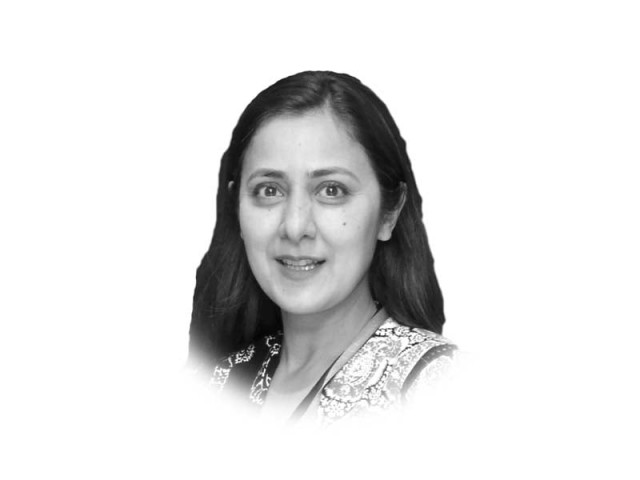Pakistan for women
We live in a country where some conservative parties have barred women from voting

The writer is a banker by profession with a strong interest in social welfare causes
Whilst the Founder of the Nation clearly understood and insisted that the progress of a nation was dependent on cooperation and participation of women, we today live in a country where some conservative parties have barred women from voting, calling it a disrespect to their religious and cultural values. Like in a lot of other situations, they take shelter in religion claiming to uphold Islamic values. How they make such a claim is beyond understanding. They simply ignore that Pakistan had the youngest female democratically elected prime minister.
Following the guidelines of the Quaid-e-Azam, Pakistani women should expect to live in a country that provides equal rights to its men and women. One that has equitable literacy rates for both genders and does not stand at current disparity; 69% for men and 40% for females. The Constitution of Pakistan declares that state shall provide free education to all the children between the ages 5-18 years. While the overall literacy figures are at an abysmal level, there is no reason to keep one gender far below the other. Statistics of entire subcontinent and most of Muslim world reflect gender parity in education with Pakistan faring the worst with the highest gap.
We also need to see more women use their abilities, knowledge and skills to take part in economic development of the country. Pakistan has the lowest percentage (22.6%) of women in workforce. In economic participation the country stands at an embarrassing 126 out of 128. Enough evidence is available to support that countries with higher female labour participation perform better economically and spend more on education and health.
Pakistani women are entitled to a better access to healthcare system that offers women safe and respectable treatment. A UN report suggests that 48% women between the ages 15-49 years on average have no say in decisions regarding their own health. Approximately 50% women do not have access to trained maternity staff and in case of complications, they have no recourse to hospitals. This leads to an alarming maternal mortality rate reported to be as high as 178/100,000 in Pakistan compared to 25 in neighbouring Iran and 30 in Sri Lanka.
We are nowhere close to a society reflecting the values that our religion and Constitution bestowed upon us. One can count many rational reasons for more gender parity in the country — economic, social, historical and religious grounds. However, the biggest impediment to equitable participation of women is patriarchal mindset of society which limits the women’s rights towards decision making. We need to ensure that the people and parties we vote for believe in giving women a level-playing field. It is heartening to see that number of women contestants and voters are highest in 2018. The incoming government needs to devise policies which ensure equal participation of women in all spheres of development.
Late in 1947, while addressing a women’s gathering in Karachi, the Quaid-e-Azam said, “Half of Pakistan is yours because you have put in no less effort to achieve it than the men.” Why then do women face struggle and resistance in education, employment, politics, economics and public spaces?
Published in The Express Tribune, July 17th, 2018.
Like Opinion & Editorial on Facebook, follow @ETOpEd on Twitter to receive all updates on all our daily pieces.













COMMENTS
Comments are moderated and generally will be posted if they are on-topic and not abusive.
For more information, please see our Comments FAQ